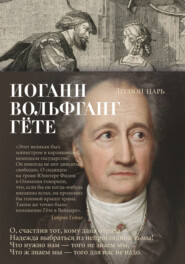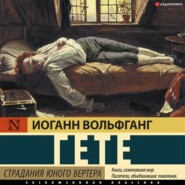По всем вопросам обращайтесь на: info@litportal.ru
(©) 2003-2024.
✖
Wilhelm Meister's Apprenticeship and Travels, Vol. I (of 2)
Настройки чтения
Размер шрифта
Высота строк
Поля
Melina, in the mean time, was torturing his brains to get the company arranged according to their several provinces, and each of them appointed to produce his own peculiar effect. In compliance with the count's injunctions and his own persuasions, he made many efforts; but at last, when it came to the point of execution, he was forced to be content, if, in so small a troop, he found his people willing to adjust themselves to this or that part as they best were able. When matters would admit of it, Laertes played the lover; Philina the lady's maid; the two young girls took up between them the characters of the artless and tender loved ones; the boisterous old gentleman of the piece was sure to be the best acted. Melina himself thought he might come forth as chevalier; Madam Melina, to her no small sorrow, was obliged to satisfy herself with personating young wives, or even affectionate mothers; and as in the newer plays, a poet or pedant is rarely introduced, and still more rarely for the purpose of being laughed at, the well-known favorite of the count was now usually transformed into president or minister, – these being commonly set forth as knaves, and severely handled in the fifth act. Melina, too, in the part of chamberlain or the like, introduced, with great satisfaction, the ineptitudes put into his hands by various honest Germans, according to use and wont, in many well-accepted plays: he delighted in these characters, because he had an opportunity of decking himself out in a fashionable style, and was called upon to assume the airs of a courtier, which he conceived himself to possess in great perfection.
It was not long till they were joined by several actors from different quarters; who, being received without very strict examination, were also retained without very burdensome conditions.
Wilhelm had been more than once assailed with persuasions from Melina to undertake an amateur part. This he declined; yet he interested and occupied himself about the general cause with great alacrity, without our new manager's acknowledging his labors in the smallest. On the contrary, it seemed to be Melina's opinion, that with his office he had at the same time picked up all the necessary skill for carrying it on. In particular, the task of curtailment formed one of his most pleasing occupations: he would succeed in reducing any given piece down to the regular measure of time, without the slightest respect to proprieties or proportions, or any thing whatever, but his watch. He met with great encouragement; the public was very much delighted; the most knowing inhabitants of the burgh maintained, that the prince's theatre itself was not so well conducted as theirs.
CHAPTER III
At last the time arrived when the company had to prepare for travelling, and to expect the coaches and other vehicles that were to carry them to the count's mansion. Much altercation now took place about the mode of travelling, and who should sit with whom. The ordering and distribution of the whole was at length settled and concluded, with great labor, and, alas! without effect. At the appointed hour, fewer coaches came than were expected: they had to accommodate themselves as the case would admit. The baron, who followed shortly afterwards on horseback, assigned, as the reason, that all was in motion at the castle, not only because the prince was to arrive a few days earlier than had been looked for, but also because an unexpected party of visitors were already come: the place, he said, was in great confusion; on this account perhaps they would not lodge so comfortably as had been intended, – a change which grieved him very much.
Our travellers packed themselves into the carriages the best way they could; and the weather being tolerable, and the castle but a few leagues distant, the heartiest of the troop preferred setting out on foot to waiting the return of the coaches. The caravan got under way with great jubilee, for the first time without caring how the landlord's bill was to be paid. The count's mansion rose on their souls like a palace of the fairies: they were the happiest and merriest mortals in the world. Each throughout the journey, in his own peculiar mode, kept fastening a continued chain of fortune, honor, and prosperity to that auspicious day.
A heavy rain, which fell unexpectedly, did not banish these delightful contemplations; though, as it incessantly continued with more and more violence, many of the party began to show traces of uneasiness. The night came on; and no sight could be more welcome than the palace of the count, which shone upon them from a hill at some distance, glancing with light in all its stories, so that they could reckon every window.
On approaching nearer, they found all the windows in the wings illuminated also. Each of the party thought within himself what chamber would be his; and most of them prudently determined to be satisfied with a room in the attic, or some of the side buildings.
They were now proceeding through the village, past the inn. Wilhelm stopped the coach, in the mind to alight there; but the landlord protested that it was not in his power to afford the least accommodation: his lordship the count, he said, being visited by some unexpected guests, had immediately engaged the whole inn; every chamber in the house had been marked with chalk last night, specifying who was to lodge there. Our friend was accordingly obliged, against his will, to travel forward to the castle with the rest of the company.
In one of the side buildings, round the kitchen fire, they noticed several cooks running busily about, – a sight which refreshed them not a little. Servants came jumping hastily with lights to the staircase of the main door, and the hearts of the worthy pilgrims overflowed at the aspect of such honors. But how great was their surprise, when this cordial reception changed into a storm of curses. The servants scouted the coachman for driving in hither; they must wheel out again, it was bawled, and take their loading round to the old castle; there was no room here for such guests! To this unfriendly and unexpected dismissal, they joined all manner of jeering, and laughed aloud at each other for leaping out in the rain on so false an errand. It was still pouring; no star was visible in the sky; while our company were dragged along a rough, jolting road, between two walls, into the old mansion, which stood behind, inhabited by none since the present count's father had built the new residence in front of it. The carriages drew up, partly in the court-yard, partly in a long, arched gateway; and the postilions, people hired from the village, unyoked their horses, and rode off.
As nobody came forward to receive the travellers, they alighted from their places, they shouted, and searched. In vain! All continued dark and still. The wind swept through the lofty gate: the court and the old towers were lying gray and dreary, and so dim that their forms could scarcely be distinguished in the gloom. The people were all shuddering and freezing; the women were becoming frightened; the children began to cry; the general impatience was increasing every minute; so quick a revolution of fortune, for which no one of them had been at all prepared, entirely destroyed their equanimity.
Expecting every minute that some person would appear and unbolt the doors, mistaking at one time the pattering of rain, at another the rocking of the wind, for the much-desired footstep of the castle bailiff, they continued downcast and inactive: it occurred to none of them to go into the new mansion, and there solicit help from charitable souls. They could not understand where their friend the baron was lingering: they were in the most disconsolate condition.
At last some people actually arrived: by their voices, they were recognized as the pedestrians who had fallen behind the others on the journey. They intimated that the baron had tumbled with his horse, and hurt his leg severely: and that, on calling at the castle, they, too, had been roughly directed hither.
The whole company were in extreme perplexity: they guessed and speculated as to what should now be done, but they could fix on nothing. At length they noticed from afar a lantern advancing, and took fresh breath at sight of it; but their hopes of quick deliverance again evaporated, when the object approached, and came to be distinctly seen. A groom was lighting the well-known Stallmeister of the castle towards them: this gentleman, on coming nearer, very anxiously inquired for Mademoiselle Philina. No sooner had she stepped forth from the crowd, than he very pressingly offered to conduct her to the new mansion, where a little place had been provided for her with the countess's maids. She did not hesitate long about accepting his proposal; she caught his arm, and, recommending her trunk to the care of the rest, was going to hasten off with him directly: but the others intercepted them, asking, entreating, conjuring the Stallmeister; till at last, to get away with his fair one, he promised every thing, assuring them, that, in a little while, the castle should be opened, and they lodged in the most comfortable manner. In a few moments they saw the glimmer of his lantern vanish: they long looked in vain for another gleam of light. At last, after much watching, scolding, and reviling, it actually appeared, and revived them with a touch of hope and consolation.
An ancient footman opened the door of the old edifice, into which they rushed with violence. Each of them now strove to have his trunk unfastened, and brought in beside him. Most of this luggage, like the persons of its owners, was thoroughly wetted. Having but a single light, the process of unpacking went on very slowly. In the dark passages they pushed against each other, they stumbled, they fell. They begged to have more lights, they begged to have some fuel. The monosyllabic footman, with much ado, consented to put down his own lantern; then went his way, and came not again.
They now began to investigate the edifice. The doors of all the rooms were open: large stoves, tapestry hangings, inlaid floors, yet bore witness to its former pomp; but of other house-gear there was none to be seen, – no table, chair, or mirror, nothing but a few monstrous, empty bedsteads, stripped of every ornament and every necessary. The wet trunks and knapsacks were adopted as seats: a part of the tired wanderers placed themselves upon the floor. Wilhelm had sat down upon some steps: Mignon lay upon his knees. The child was restless; and, when he asked what ailed her, she answered, "I am hungry." He himself had nothing that could still the craving of the child: the rest of the party had consumed their whole provision, so he was obliged to leave the little traveller without refreshment. Through the whole adventure he had been inactive, silently immersed in thought. He was very sullen, and full of indignant regret that he had not kept by his first determination, and remained at the inn, though he should have slept in the garret.
The rest demeaned themselves in various ways. Some of them had got a heap of old wood collected within a vast, gaping chimney in the hall: they set fire to the pile with great huzzaing. Unhappily, however, their hopes of warming and drying themselves by means of it were mocked in the most frightful manner. The chimney, it appeared, was there for ornament alone, and was walled up above; so the smoke rushed quickly back, and at once filled the whole chamber. The dry wood rose crackling into flames; the flame was also driven back; the draught sweeping through the broken windows gave it a wavering direction. Terrified lest the castle should catch fire, the unhappy guests had to tear the burning sticks asunder, to smother and trample them under their feet; the smoke increased; their case was rendered more intolerable than before; they were driven to the brink of desperation.
Wilhelm had retreated from the smoke into a distant chamber, to which Mignon soon followed him, leading in a well-dressed servant, with a high, clear, double-lighted lantern in his hand. He turned to Wilhelm, and, holding out to him some fruits and confectionery on a beautiful porcelain plate, "The young lady up-stairs," said he, "sends you this, with the request that you would join her party: she bids me tell you," added the lackey, with a sort of grin, "that she is very well off yonder, and wishes to divide her enjoyments with her friends."
Wilhelm had not at all expected such a message; for, ever since the adventure on the stone bench, he had treated Philina with the most decided contempt. He was still so resolute to have no more concern with her that he thought of sending back her dainty gifts untasted, when a supplicating look of Mignon's induced him to accept them. He returned his thanks in the name of the child. The invitation he entirely rejected. He desired the servant to exert himself a little for the stranger company, and made inquiry for the baron. The latter, he was told, had gone to bed, but had already, as the lackey understood, given orders to some other person to take charge of these unfortunate and ill-lodged gentlemen.
The servant went away, leaving one of his lights, which Wilhelm, in the absence of a candlestick, contrived to fix upon the window-casement; and now, at least in his meditations, he could see the four walls of his chamber. Nor was it long till preparations were commenced for conducting our travellers to rest. Candles arrived by degrees, though without snuffers; then a few chairs; an hour afterwards came bed-clothes; then pillows, all well steeped in rain. It was far past midnight when straw beds and mattresses were produced, which, if sent at first, would have been extremely welcome.
In the interim, also, somewhat to eat and drink had been brought in: it was enjoyed without much criticism; though it looked like a most disorderly collection of remains, and offered no very singular proof of the esteem in which our guests were held.
CHAPTER IV
The disorders and mischievous tricks of some frolicsome companions still further augmented the disquietudes and distresses of the night: these gay people woke each other; each played a thousand giddy pranks to plague his fellow. The next morning dawned amid loud complaints against their friend the baron, for having so deceived them, for having given so very false a notion of the order and comfort that awaited their arrival. However, to their great surprise and consolation, at an early hour the count himself, attended by a few servants, made his entrance, and inquired about their circumstances. He appeared much vexed on discovering how badly they had fared; and the baron, who came limping along, supported on the arm of a servant, bitterly accused the steward for neglecting his commands on this occasion, – showing great anxiety to have that person punished for his disobedience.
The count gave immediate orders that every thing should be arranged, in his presence, to the utmost possible convenience of the guests. While this was going on, some officers arrived, who forthwith scraped acquaintance with the actresses. The count assembled all the company before him, spoke to each by name, introduced a few jokes among his observations; so that every one was charmed at the gracious condescension of his lordship. At last it came to Wilhelm's turn. He appeared with Mignon holding by his hand. Our friend excused himself, in the best terms he could, for the freedom he had taken. The count, on the other hand, spoke as if the visit had been looked for.
A gentleman, who stood beside the count, and who, although he wore no uniform, appeared to be an officer, conversed with Wilhelm: he was evidently not a common man. His large, keen blue eyes, looking out from beneath a high brow; his light-colored hair, thrown carelessly back; his middle stature; every thing about him, – showed an active, firm, and decisive mode of being. His questions were lively. He seemed to be at home in all that he inquired about.
Wilhelm asked the baron what this person was, but found that he had little good to say of him. "He held the rank of major, was the special favorite of the prince; managed his most secret affairs; was, in short, regarded as his right arm, – nay, there was reason to believe him the prince's natural son. He had been on embassies in France, England, Italy. In all those places he had greatly distinguished himself, by which means he was grown conceited; imagining, among other pretensions, that he thoroughly understood the literature of Germany, and allowing himself to vent all kinds of sorry jests upon it. He, the baron, was in the habit of avoiding all intercourse with him; and Wilhelm would do well to imitate that conduct, for it somehow happened that no one could be near him without being punished for it. He was called Jarno, though nobody knew rightly what to make of such a name."
Wilhelm had nothing to urge against all this: he had felt a sort of inclination for the stranger, though he noticed in him something cold and repulsive.
The company being arranged and distributed throughout the castle, Melina issued the strictest orders that they should behave themselves with decency, the women live in a separate quarter, and each direct his whole attention to the study of dramatic art, and of the characters he had to play. He posted up written ordinances, consisting of many articles, upon all the doors. He settled the amount of fine which should be levied upon each transgressor, and put into a common box.
This edict was but little heeded. Young officers went out and in; they jested, not in the most modest fashion, with the actresses; made game of the actors, and annihilated the whole system of police before it had the smallest time to take root in the community. The people ran chasing one another through the rooms; they changed clothes; they disguised themselves. Melina, attempting to be rigorous with a few at first, was exasperated by every sort of insolence; and, when the count soon after sent for him to come and view the place where his theatre was to be erected, matters grew worse and worse. The young gentry devised a thousand broad jokes: by the help of some actors, they became yet coarser. It seemed as if the old castle had been altogether given up to an infuriate host, and the racket did not end till dinner.
Meanwhile, the count had led Melina over to a large hall, which, though belonging to the old castle, communicated by a gallery with the new one: it seemed very well adapted for being changed into a little theatre. Here the sagacious lord of the mansion pointed out in person how he wanted every thing to be.
The labor now commenced in the greatest haste; the stage apparatus was erected and furbished up; what decorations they had brought along with them and could employ were set in order, and what was wanting was prepared by some skilful workmen of the count's. Wilhelm likewise put his hand to the business; he assisted in settling the perspective, in laying off the outlines of the scenery: he was very anxious that nothing should be executed clumsily. The count, who frequently came in to inspect their progress, was highly satisfied: he showed particularly how they should proceed in every case, displaying an uncommon knowledge of all the arts they were concerned with.
Next began the business of rehearsing, in good earnest; and there would have been enough of space and leisure for this undertaking, had the actors not continually been interrupted by the presence of visitors. Some new guests were daily arriving, and each insisted on viewing the operations of the company.
CHAPTER V
The baron had, for several days, been cheering Wilhelm with the hope of being formally presented to the countess. "I have told this excellent lady," said he, "so much about the talent and fine sentiment displayed in your compositions, that she feels quite impatient to see you, and hear one or two of them read. Be prepared, therefore, to come over at a moment's notice; for, the first morning she is at leisure, you will certainly be called on." He then pointed out to him the afterpiece it would be proper to produce on that occasion; adding, that doubtless it would recommend him to no usual degree of favor. The lady, he declared, was extremely sorry that a guest like him had happened to arrive at a time of such confusion, when they could not entertain him in a style more suitable to his merits and their own wishes.
In consequence of this information, Wilhelm, with the most sedulous attention, set about preparing the piece, which was to usher him into the great world. "Hitherto," said he, "thou hast labored in silence for thyself, applauded only by a small circle of friends. Thou hast for a time despaired of thy abilities, and are yet full of anxious doubts whether even thy present path is the right one, and whether thy talent for the stage at all corresponds with thy inclination for it. In the hearing of such practised judges, in the closet where no illusion can take place, the attempt is far more hazardous than elsewhere; and yet I would not willingly recoil from the experiment: I could wish to add this pleasure to my former enjoyments, and, if it might be, to give extension and stability to my hopes from the future."
He accordingly went through some pieces; read them with the keenest critical eye; made corrections here and there; recited them aloud, that he might be perfect in his tones and expression: and finally selected the work which he was best acquainted with, and hoped to gain most honor by. He put it in his pocket, one morning, on being summoned to attend the countess.
The baron had assured him that there would be no one present but the lady herself and a worthy female friend of hers. On entering the chamber, the Baroness von C – advanced with great friendliness to meet him, expressed her happiness at gaining his acquaintance, and introduced him to the countess, who was then under the hands of her hair-dresser. The countess received him with kind words and looks. But it vexed him to see Philina kneeling at her chair, and playing a thousand fooleries. "The poor child," said the baroness, "has just been singing to us. Finish the song you were in the midst of: we should not like to lose it."
Wilhelm listened to her quavering with great patience, being anxious for the friseur's departure before he should begin to read. They offered him a cup of chocolate, the baroness herself handing him the biscuit. Yet, in spite of these civilities, he relished not his breakfast: he was longing too eagerly to lay before the lovely countess some performance that might interest and gratify her. Philina, too, stood somewhat in his way: on former occasions, while listening to him, she had more than once been troublesome. He looked at the friseur with a painful feeling, hoping every moment that the tower of curls would be complete.
Meanwhile the count came in, and began to talk of the fresh visitors he was expecting, of the day's occupations or amusements, and of various domestic matters that were started. On his retiring, some officers sent to ask permission of the countess to pay their respects to her, as they had to leave the castle before dinner. The footman having come to his post at the door, she permitted him to usher in the gentlemen.
The baroness, amid these interruptions, took pains to entertain our friend, and showed him much consideration; all which he accepted with becoming reverence, though not without a little absence of mind. He often felt for the manuscript in his pocket, and hoped for his deliverance every instant. He was almost losing patience, when a man-milliner was introduced, and immediately began without mercy to open his papers, bags, and bandboxes; pressing all his various wares upon the ladies, with an importunity peculiar to that species of creature.
The company increased. The baroness cast a look at Wilhelm, and then whispered with the countess: he noticed this, but did not understand the purpose of it. The whole, however, became clear enough, when, after an hour of painful and fruitless endurance, he went away. He then found a beautiful pocket-book, of English manufacture, in his pocket. The baroness had dexterously put it there without his notice; and soon afterwards the countess's little black came out, and handed him an elegantly flowered waistcoat, without very clearly saying whence it came.
CHAPTER VI
This mingled feeling of vexation and gratitude spoiled the remainder of his day; till, towards evening, he once more found employment. Melina informed him that the count had been speaking of a little prelude, which he wished to have produced in honor of the prince, on the day of his Highness's arrival. He meant to have the great qualities of this noble hero and philanthropist personified in the piece. These Virtues were to advance together, to recite his praises, and finally to encircle his bust with garlands of flowers and laurels; behind which a transparency might be inserted, representing the princely Hat, and his name illuminated on it. The count, Melina said, had ordered him to take charge of getting ready the verses and other arrangements; and Wilhelm, he hoped, to whom it must be an easy matter, would stand by him on this occasion.
"What!" exclaimed our friend, in a splenetic tone, "have we nothing but portraits, illuminated names, and allegorical figures, to show in honor of a prince, who, in my opinion, merits quite a different eulogy? How can it flatter any reasonable man to see himself set up in effigy, and his name glimmering on oiled paper? I am very much afraid that your allegories, particularly in the present state of the wardrobe, will furnish occasion for many ambiguities and jestings. If you mean, however, to compose the play, or have it composed, I can have nothing to object; only I desire to have no part or lot in the matter."
Melina excused himself; alleging this to be only a casual hint of his lordship the count, who for the rest had left the arrangement of the piece entirely in their own hands. "With all my heart," replied our friend, "will I contribute something to the pleasure of this noble family: my Muse has never had so pleasant an employment as to sing, though in broken numbers, the praises of a prince who merits so much veneration. I will think of the matter: perhaps I may be able to contrive some way of bringing out our little troop, so as at least to produce some effect."
From this moment Wilhelm eagerly reflected on his undertaking. Before going to sleep he had got it all reduced to some degree of order; early next morning his plan was ready, the scenes laid out; a few of the most striking passages and songs were even versified and written down.
As soon as he was dressed, our friend made haste to wait upon the baron, to submit the plan to his inspection, and take his advice upon certain points connected with it. The baron testified his approbation of it, but not without considerable surprise. For, on the previous evening, he had heard his lordship talk of having ordered some quite different piece to be prepared and versified.
"To me it seems improbable," replied our friend, "that it could be his lordship's wish to have the piece got ready, exactly as he gave it to Melina. If I am not mistaken, he intended merely to point out to us from a distance the path we were to follow. The amateur and critic shows the artist what is wanted, and then leaves to him the care of producing it by his own means."
"Not at all," replied the baron: "his lordship understands that the piece shall be composed according to that and no other plan which he has himself prescribed. Yours has, indeed, a remote similarity with his idea; but if we mean to accomplish our purpose, and get the count diverted from his first thought, we shall need to employ the ladies in the matter. The baroness especially contrives to execute such operations in the most masterly manner: the question is now, whether your plan shall so please her, that she will undertake the business; in that case it will certainly succeed."
"We need the assistance of the ladies," said our friend, "at any rate; for neither our company nor our wardrobe would suffice without them. I have counted on some pretty children, that are running up and down the house, and belong to certain of the servants."

















